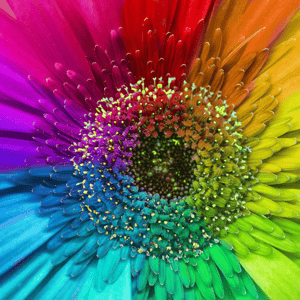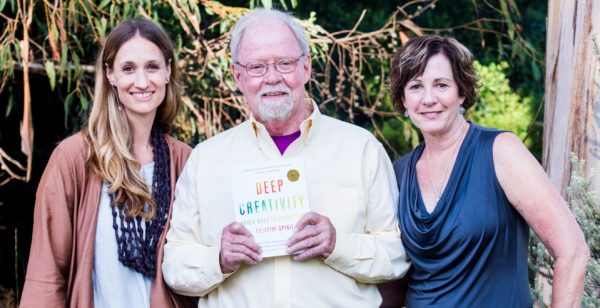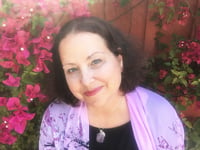 Deep Creativity: An Interview with Jennifer Leigh Selig
Deep Creativity: An Interview with Jennifer Leigh Selig
By Angela Borda
Jennifer is a prolific writer with three screenplays and twenty-two books she has been involved with. Passionate about travel and photography, she is the co-author of Deep Creativity: Seven Ways to Spark Your Creative Spirit and will be co-presenting the Pacifica workshop of the same name with Pacifica scholars Deborah Anne Quibell and Dennis Slattery on March 5–7, 2021. She and Deborah Anne Quibell will also teach a three-month intensive March 8–May 31, 2021. Visit us for more information here. I was delighted to speak with Jennifer, as she is exemplary of Pacifica’s deep-thinking and inquiring spirit.
Angela: What teaching dynamic do you share with Dennis and Deborah and what kind of atmosphere and interaction can participants look forward to between the three of you and with them?
Jennifer: My relationship with Deborah and Dennis is one of the most important and rewarding relationships of my life, and I think that shows up in our teaching dynamics. From the beginning of our collaboration, it was really clear that we respect one another. We each so value what the other two bring—as teachers, as writers, and as human beings. And, there’s a genuine mutual affection for one another, a real love and care for one another that we don’t attempt to hide or to cloak under a veil of professionalism. I think that goes a long way to putting participants at ease, knowing they are in the company of good friends. We learn a lot from our interactions, and we see ourselves as co-learners along with our participants. I look forward to Dennis’ and Deborah’s sessions during the weekend, in the same way I always looked forward to reading their chapters when we were drafting the book. Also, they are both fantastic listeners, so I know that after presenting my sessions, when I open it up to them for discussion, they are going to ask great questions and offer astute comments.
There may be moments of levity and laughter during the weekend, in the same way those sometimes appear in the chapters of our book. We do take ourselves seriously—but not that seriously! And though we are all three scholars, we approach creativity very holistically, not just with our thinking, logos-oriented brains, but with our bodies, our spirits, our souls, and definitely with our eros-oriented hearts. Our work is naturally approachable and accessible—we tell stories far more than we quote scholarship. And if you look through our 15 principles of deep creativity, you’ll notice there’s no “Deep Creativity is Intellectual.” We do think about creativity and the creative process, and we will present ideas about creativity, but never in a detached way. Ideas are always in service of inspiration and expansion—expanding our understanding of creativity and expanding our capacity to create.
Angela: In the upcoming workshop, you will be leading a section on the 15 principles of creativity presented in the book. For those who are not yet familiar with the book, please describe how the 15 principles were developed.
Jennifer: It's so interesting—I consider the 15 principles of creativity to be the crux of the book, our most important contribution, and yet, they came at the very end of the process—we never set out to create a set of principles at all! We started with the 7 ways into creativity, we moved into stories centered around each of these ways, we then added reflection questions and exercises, and it wasn’t until we were in our final edits in the book proposal stage that it occurred to me that we were doing something else rather extraordinary in this book.
I’ll never forget this moment. Deborah and I were renting a place on the Algarve coast in Portugal late in November of 2016. We were each in our separate spaces, working on sections of the proposal, when I had that flash of insight—we really were defining a new way of looking at creativity based on the principles we all shared from our backgrounds in depth psychology. What if we named those? I wondered. What if we called them out? I started making a list: deep creativity is healing, deep creativity is autonomous, deep creativity is archetypal, etc. I took my beginning list to Deborah, and she matched my enthusiasm for the idea, as did Dennis when we contacted him. After naming the principles, I went through each chapter to identify where they showed up, which was so much magic because the appeared spontaneously—by that I mean, we never intended to embed them into our texts. They were just there, by virtue of our understanding of depth psychology. And really, that’s what the principles are. They are 15 principles of the deep psyche, as applied to creativity.
Angela: Which of the principles do you feel may be most pertinent or helpful at this moment?

Jennifer: Because all of us are experiencing this time of interlocking global crises differently, I would imagine the answer would be unique to each of us—and indeed, the first principle is that deep creativity is idiosyncratic, meaning that we all approach creativity from our own individual and sometimes eccentric, certainly unique ways. But certainly the principle that deep creativity is healing—that’s invaluable during a time of such collective suffering. Sometimes our creativity is the only thing that keeps us afloat when the undertow is so strong. Just get up in the morning and create one new blog post, or explore one new recipe, or fiddle with Photoshop, or add one more paragraph onto your memoir. Also, I like the pairing of deep creativity is both receptive and responsive, what we liken to the in-breath and the out-breath. We breathe in what surrounds us, and right now, what surrounds us collectively is a lot of chaos and confusion and reason for caution and concern. We take that in and we do something with it—we breathe it out in our acts of creation.
Angela: It has been seen throughout history that after periods of illness and isolation (such as the plague), that humanity springs forward into ages of intense creativity. We've seen the last year filled with isolation and fear of the unknown. From the perspective of depth psychology, how would you describe this period of wintering, and how would you expect it to impact creative people, artists, writers, etc. as we move out of this period? Do you expect another renaissance? Is this the moment for deep creativity to blossom?
Jennifer: During this pandemic, I have missed seeing my family so much. I literally breathe in that missing—I feel it in my body. I miss their bodies. I miss our embodied, easy time together. So what do I do with that? I can’t keep all that missing inside or I’ll implode. So I breathe it back out. In my case, I gathered together everyone’s VHS recordings of various family occasions spanning back over the last 25-ish years. I bought some computer software to convert the videos to digital files, and I shared those files with my family. I had such a wonderful time doing so—dipping back into our past together as a family, seeing all of our bodies again and how we’ve grown and changed, especially the children. It was my creative response to a lack of embodiment, and it brought me such joy and alleviated a measure of my suffering.

So when you ask, “Do you expect another renaissance? Is this the moment for deep creativity to blossom?” my answer is two-fold. First, it’s always the moment for deep creativity to blossom, because deep creativity is based on timeless psychological principles and it needs no impetus to bloom. Deep creativity is archetypal, and the time is always right for archetypal activity. But second, yes. There are some really special conditions now that make the conditions just right for blooming even more, for bursting into bloom really. When people lose a measure of their freedom, which we have definitely lost, the human spirit is such that it gets really creative. I can’t go to work in the office? I’ll find creative ways to make it work to work from home. Our kids can’t go to school? We’ll find creative ways to teach online. We can’t see our families? We’ll find creative ways to have virtual gatherings and parties and game nights. We can’t buy toilet paper? We’ll find creative ways. . . well, at least that moment has passed.
We’ve seen that creativity in the arts. Late night talk show hosts hosted from their homes. Musicians offered virtual concerts, and bands found ways to play with each other from remote distances. Chefs hosted virtual live cooking classes. And I don’t have the data on this, but more people than ever before had time to take online classes, and explore aspects of their own creativity from the comfort of their homes.
I would add too that during this time, our hearts have been tenderized. Most of us are feeling so vulnerable in one way or the other, whether that’s financial, psychological, or physical. We miss each other, we ache for each other, we realize how much love and connection matter to us. And in that tenderization, we experience a wide range of emotions. The more access we have to our emotional lives, I believe, the more expansive our creativity is. One of our principles is that deep creativity is emotional, so this time of experiencing expanded emotional capacity is bound to make a difference in our creative expression. I’ve been teaching memoir writing to dozens of students over the last four years, and I’m seeing that very specifically in their work. The ones who began in 2020, right when the pandemic hit in March, are far more vulnerable in their writing and far more loving and and tender and emotionally available in their responses to each other’s writing than any other cohort I’ve taught, but all of my cohorts are also expressing more emotion expansion in their writing, which is making it much more compelling.
I hope we’ll have that experience together in our weekend workshop—an experience of vulnerability, of emotion, of inspired companionship and expanded creativity. And definitely during the 12 weeks online that follows the weekend, where we will witness and encourage and support each other’s creative process and products. I really cannot wait to see what emerges from our time together.
Angela: Thank you so much for your thoughtful responses. Pacifica is so pleased to host your upcoming March workshop and also your three-month intensive that will follow. I know I’m looking forward to it!
"The creative spirit is everywhere and anywhere and cannot be contained or restrained inside any studio walls. We find the holy, the beautiful, every day out in our everywhere world."
— Jennifer, Deep Creativity
The Deep Creativity: Invoking and Inspiring Your Creative Soul event is taking place March 2021. For more information and to register, visit our website https://retreat.pacifica.edu/deep-creativity/

 Jennifer Leigh Selig, Ph.D. spent over 30 years in education, where she was known for her innovative and cross-disciplinary approach to curriculum and program development in literature, humanities, and depth psychology. She travels the world teaching courses on deep creativity, including deep memoir and deep vocation. She is the author of dozens of newspaper articles, book reviews, journal articles, three screenplays, and is either the author, editor, contributor, or publisher of over twenty-two books. She is a frequently invited speaker to national and international conferences, symposiums, and workshops. Besides writing, she is passionate about travel and photography. She considers collaborating with Deborah and Dennis to be among one of the most privileged and joyful experiences in her life. (www.jenniferleighselig.com)
Jennifer Leigh Selig, Ph.D. spent over 30 years in education, where she was known for her innovative and cross-disciplinary approach to curriculum and program development in literature, humanities, and depth psychology. She travels the world teaching courses on deep creativity, including deep memoir and deep vocation. She is the author of dozens of newspaper articles, book reviews, journal articles, three screenplays, and is either the author, editor, contributor, or publisher of over twenty-two books. She is a frequently invited speaker to national and international conferences, symposiums, and workshops. Besides writing, she is passionate about travel and photography. She considers collaborating with Deborah and Dennis to be among one of the most privileged and joyful experiences in her life. (www.jenniferleighselig.com)
 Angela Borda is a writer for Pacifica Graduate Institute, as well as the editor of the Santa Barbara Literary Journal. Her work has been published in Food & Home, Peregrine, Hurricanes & Swan Songs, Delirium Corridor, Still Arts Quarterly, Danse Macabre, and is forthcoming in The Tertiary Lodger and Running Wild Anthology of Stories, Vol. 5.
Angela Borda is a writer for Pacifica Graduate Institute, as well as the editor of the Santa Barbara Literary Journal. Her work has been published in Food & Home, Peregrine, Hurricanes & Swan Songs, Delirium Corridor, Still Arts Quarterly, Danse Macabre, and is forthcoming in The Tertiary Lodger and Running Wild Anthology of Stories, Vol. 5.



